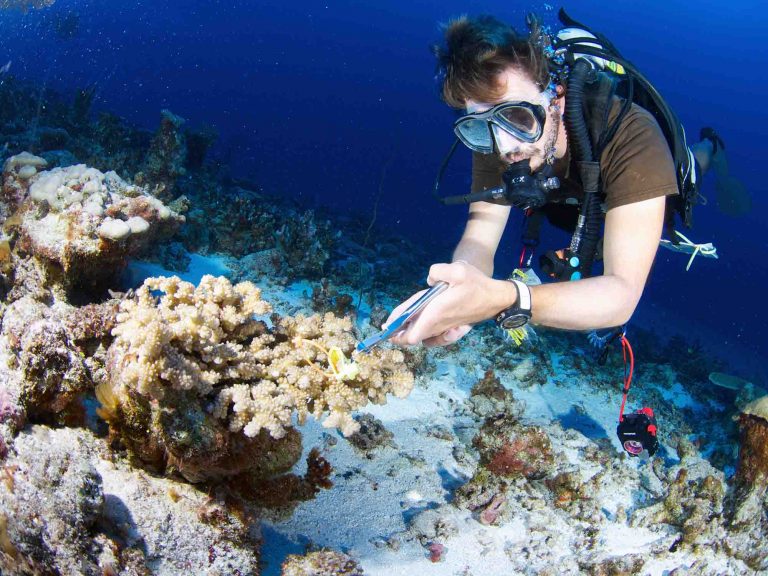DIVING NEWS
A comprehensive report of the findings from what is described as the biggest coral-reef survey and mapping expedition in history has just been published. The 10-year Global Reef Expedition was organised by the US-based Khaled bin Sultan Living Oceans Foundation (KSLOF).
With scientists estimating that half the world’s coral reefs have already been lost over the past 40 years, the foundation says that its report provides “valuable baseline data at a critical point in time”, offering “key insights” into how to save those reefs that remain.
Also read: Students visualise the Sixth Extinction
The expedition brought together hundreds of scientists from around the world to conduct tens of thousands of standardised scientific surveys at more than 1000 reefs in 16 countries. More than 25,000sq miles of marine habitats from the Red Sea through the Atlantic, Pacific and Indian Oceans were mapped in the process.
The scientists collaborated with local experts, managers, educators and government officials to identify reef status and major threats, and examine factors affecting the reefs’ ability to survive major disturbance events such as coral-bleaching.
Hardly any location surveyed was untouched by what KSLOF calls the “coral-reef crisis”, with natural and human impacts including bleaching, crown-of-thorns starfish depredation and the effects of severe storms, overfishing, coastal development and pollution.
“Nearly every country we studied showed signs of overfishing – even on some of the most remote and well-protected reefs,” said marine ecologist Renée Carlton, the report’s lead author. She noted that having fewer and smaller fish on reefs posed problems for reef health as well as for those who depended on them for protein and income.
“We know marine protected areas work – in most instances these reefs had some of the best coral cover and reef-fish communities, but climate change, storms and outbreaks of crown-of-thorns starfish can still have deadly consequences to a reef, no matter how remote or well-protected it is,” said Carlton.
KSLOF says that its greatest conservation success came through engaging local communities directly. Education and outreach programmes were designed to improve ocean literacy and inspire conservation action.
“Findings from the Global Reef Expedition are already helping countries protect and preserve their reefs and coastal marine resources,” said the foundation’s science management director Alexandra Dempsey. “Marine protected areas, fisheries closures and traditionally managed areas have been established in the Bahamas, Jamaica, Fiji and the Cook Islands using information collected on the expedition.”
“I have no doubt that the baseline determined by the Global Reef Expedition for the world’s reefs will remain a reference for centuries to come,” said KSLOF chief scientist Sam Purkis, who described the expedition as “a monumental achievement”.

